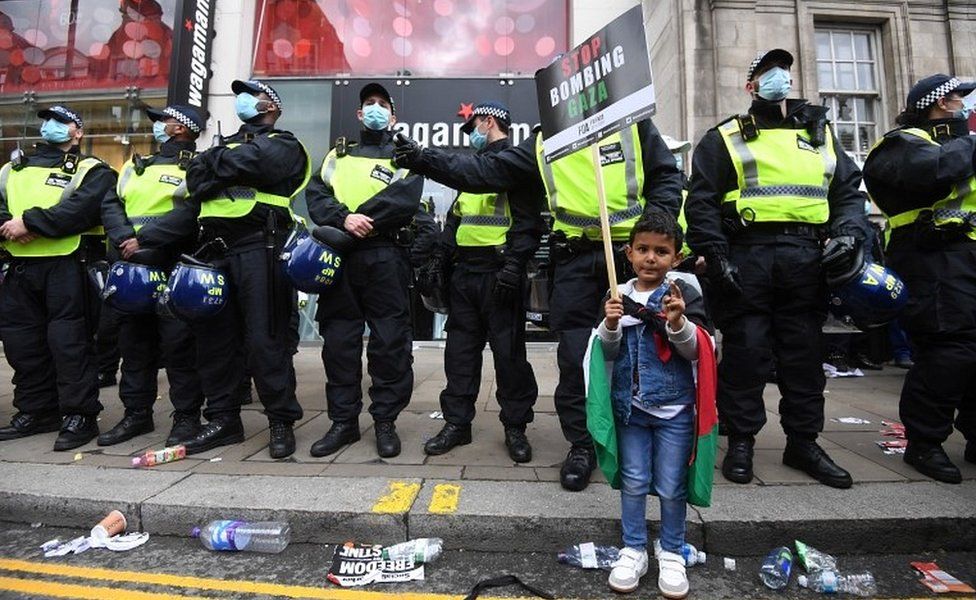Pro-Palestine Protests
The Guardian has reported that London police officers have been instructed to gather intelligence from schools after massive protests against Israeli atrocities in Gaza. Concerns have been raised that this will lead to more discrimination against minority communities.
A top Met police officer sent a letter to headteachers of schools in four London districts, instructing officers to “increase their visible patrols” at schools and engage with school staff to obtain information about “community tensions.” This engagement is intended to support the force’s “intelligence and information-gathering.”
The publication reported that more police officers would be stationed at schools to help create “safe spaces” in collaboration with school staff.

Rights activists and community leaders have expressed concerns over the move, stating that it would further erode the trust of minority communities in the police.
Community campaigner Stafford Scott commented, “It’s very likely these actions will stereotype and criminalize young people, especially those from minority backgrounds. Trust and confidence in the police in the communities that I deal with is very low. Rather than reassuring children, their presence in schools generally causes alarm and concern on the basis that they disproportionately target children from ethnic minorities.”
London Police’s ‘Ruthless’ Stance on Hate Crime
The head of London’s Metropolitan Police force, Mark Rowley, announced his commitment to “ruthlessly” arresting individuals involved in hate crimes. He expressed support for a review of the legal definition of extremism in response to criticisms of his officers’ handling of pro-Palestine protests in London.
Some British politicians criticized London’s police for not arresting individuals at a pro-Palestinian rally who were shouting “jihad.” Subsequently, the police stated that the phrase could have multiple meanings and, therefore, did not constitute an offense.
Rowley stated on Sky News, “There is scope to be much sharper in how we deal with extremism within this country. The law was never designed to deal with extremism. There’s a lot to do with terrorism and hate crime, but we don’t have a body of law that deals with extremism, and that is creating a gap.”
UK ministers are currently reviewing the legal definition of extremism to address hate crimes, including antisemitism. The UK government is also considering potential changes to terrorism legislation, as reported by The Sunday Telegraph.


